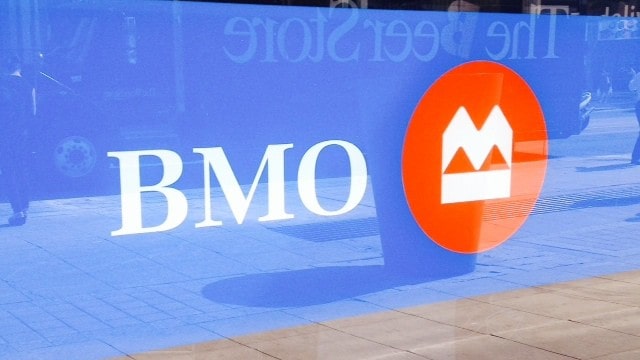Canada’s Big Banks remain some of the most secure investments on the market for investors seeking long-term growth. One of the Big Banks that consistently falls under the radar of most investors is Bank of Montreal (TSX:BMO)(NYSE:BMO).
Bank of Montreal is neither the largest nor the most renowned of the Big Banks, but there are several compelling reasons that investors should take a closer look at the banks.
Let’s examine those reasons now, as well as some of the concerns that critics of the bank have made recently.
Bank of Montreal is a great dividend investment
Bank of Montreal is often mentioned as a great income investment, and for good reason. The bank holds the honour of being the first company in Canada to provide a dividend to investors as far back as 1829 — and has continued to reward investors ever since.
The current quarterly dividend provides a respectable $0.93 per share, which translates into a very healthy 3.80% yield. Potential income-seeking investors should note that Bank of Montreal has hiked the dividend on an annual or better basis over the past five years.
In terms of growth, Bank of Montreal has averaged near 10% growth over the past decade. That’s impressive for a mature operation, as it not only makes the bank a great dividend investment, but also a viable growth play.
Expansion into new markets and ventures
Bank of Montreal has, like most of its peers, expanded into the U.S. market over the past decade, acquiring smaller regional players and rebranding them as part of a global brand. One such example is the acquisition of Marshall & Ilsley in 2010, which saw the bank’s U.S. presence and deposits effectively double.
Bank of Montreal has an established presence in the U.S. Midwest, where the bank operates under the name BMO Harris Bank, which provides the bank with an alternative to the growing concerns in Canada’s real estate market.
Here’s another noteworthy acquisition by Bank of Montreal; in 2015, the bank purchased the transportation and financing arm of heavyweight GE Capital, the financial services unit of General Electric. The financing arm represents the largest player in the North American trucking sector. Several of Bank of Montreal’s peers have announced major acquisitions in recent months, and there’s plenty of speculation that BMO may soon follow suit with another acquisition of its own.
What about results?
Like its peers, Bank of Montreal continues to outperform during earnings season. In the most recent quarter, the bank announced adjusted net income of $1.4 billion, or $2.12 per share. The Canadian segment accounted for $647 million in net income for the quarter, reflecting a 13% decrease over the same quarter last year.
The U.S. segment, on the other hand, brought in $310 million in net income, which was a $61 million, or 24% improvement in net income over the same period last year.
BMO’s wealth management arm came up mostly flat over the same quarter last year, reporting $266 million in net income, which was $3 million lower than the previous period.
Is Bank of Montreal a good investment?
Bank of Montreal holds significant potential for investors looking to balance growth and income from a single stock. Bank of Montreal’s dividend is both stable and growing, and the bank’s exposure to the U.S. market offers an opportunity for further growth as well as a hedge against any weakness in the Canadian market.
 2-for1 Sale
2-for1 Sale








